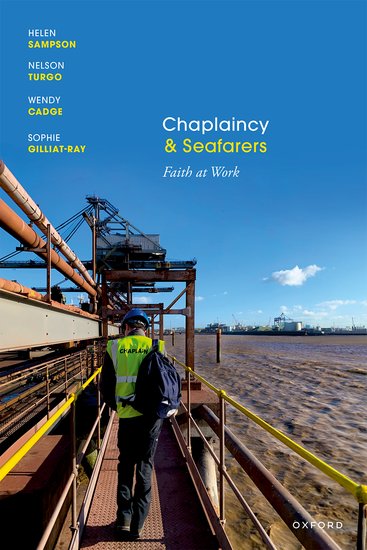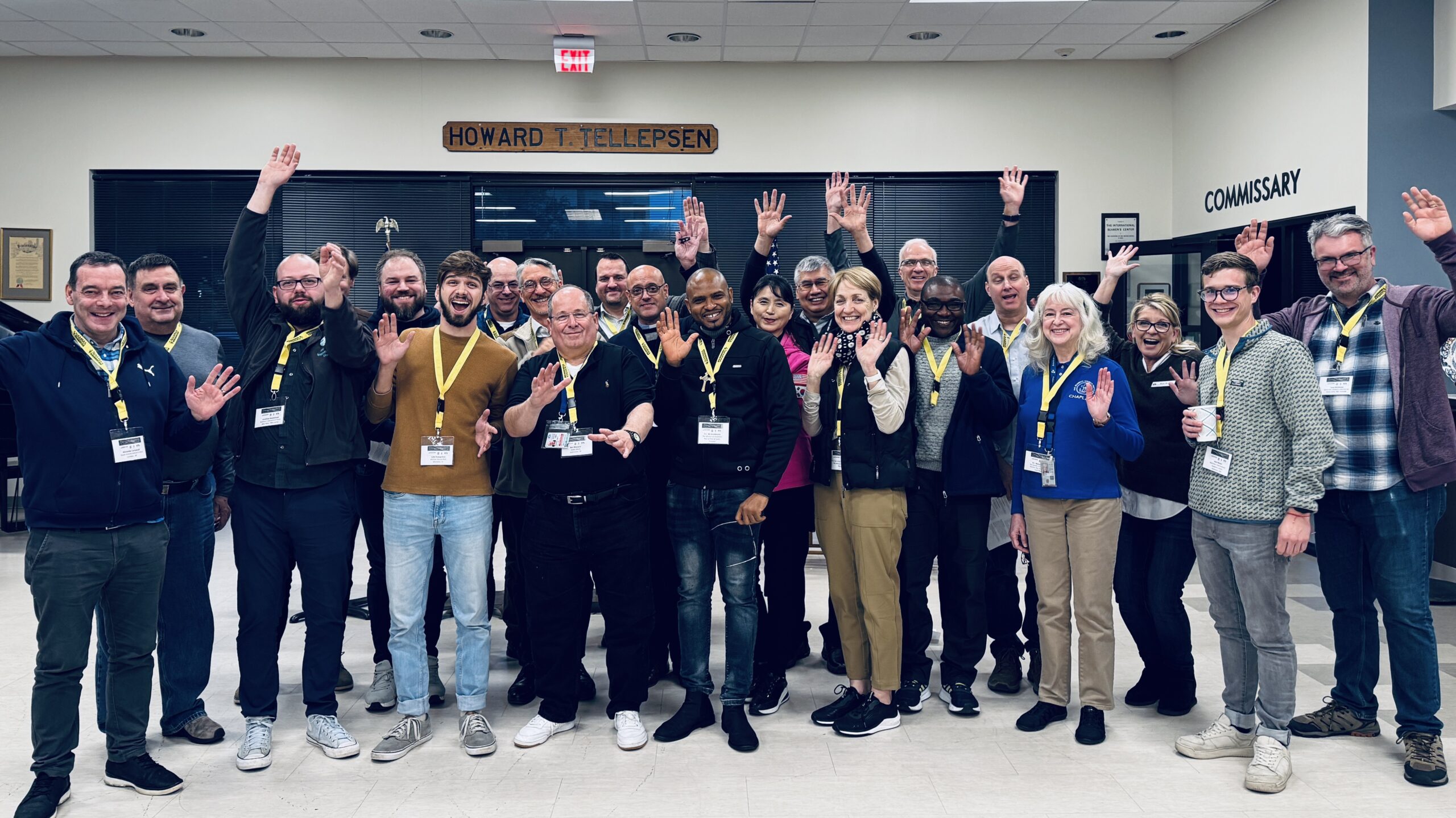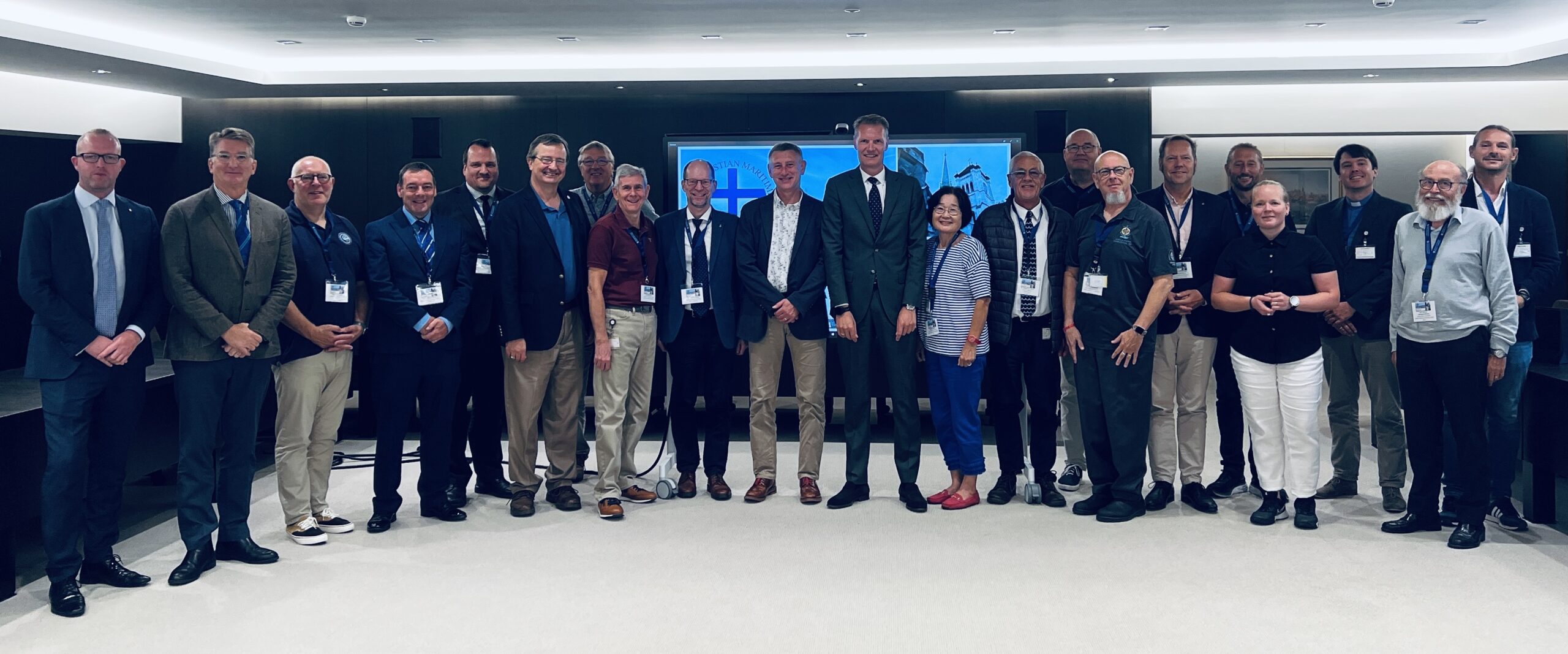by Jason Zuidema (NAMMA/ICMA)
Book Notice: Chaplaincy and Seafarers: Faith at Work by Helen Sampson, Nelson Turgo, Wendy Cadge, and Sophie Gilliat-Ray (Oxford, 2024).
Chaplaincy and Seafarers: Faith at Work by Helen Sampson, Nelson Turgo, Wendy Cadge, and Sophie Gilliat-Ray provides a profound and detailed exploration of the role of chaplaincy within the maritime industry. This book delves into the complexities and nuances of port chaplaincy services, the faith and welfare of seafarers, and the broader context within which these services operate. It is a comprehensive study that offers insights into the motivations, challenges, and impacts of chaplains working in one of the world’s most isolated and demanding professions.
The introduction sets the stage by highlighting the unique and often overlooked role of chaplains in the maritime industry. These religious professionals work outside traditional congregations, providing support in both public and private organizations. They are often the only source of emotional and spiritual support for seafarers, who spend long periods away from home and family, facing the harsh realities of life at sea.
The first part of the book covers the origins and contemporary work of port chaplains. The book focuses on the UK, especially two organizations The Mission to Seafarers and Stella Maris. It traces the historical development of British port chaplaincy and examines the daily activities and responsibilities of modern port chaplains. The authors conducted six months of fieldwork in two UK ports, providing an in-depth look at the services chaplains offer, the challenges they face, and their motivations and aspirations.
Chapter one explores the historical roots of port chaplaincy, detailing how it emerged from Christian efforts to reach those in need of faith who could not access traditional church communities. The chapter highlights the enduring demand for welfare support provided by port chaplains and their adaptability to the changing needs of seafarers.
Chapter two provides a rich tapestry of quotes from interviews with port chaplains, illustrating their daily work and the challenges they encounter. The authors reveal how chaplains provide a ministry of presence, offering a listening ear and practical support, such as free transport and SIM cards. These seemingly ordinary acts are vital for seafarers, helping them endure the isolation and rigors of their profession.
Chapter three delves into the motivations and aspirations of port chaplains and volunteers. It discusses how many volunteers, initially drawn to the role for personal reasons, soon discover the joy of helping seafarers. The chapter also touches on the significant role of faith in sustaining chaplains and volunteers, despite the physical and emotional demands of their work.
The second part of the book focuses on the faith and welfare of seafarers, exploring how they negotiate religious differences on board and the importance of faith as a source of psychological support.
Chapter four discusses the negotiation of faith differences on cargo vessels. The authors highlight the potential for conflict over religious beliefs and how seafarers often avoid discussing religion to prevent disputes. This chapter provides insights into the strategies seafarers use to navigate religious diversity and maintain harmony on board.
Chapter five examines the significance of faith and support services for seafarers at sea. It underscores the vital role of religion in providing emotional stability, staving off boredom, and counteracting loneliness. The chapter also discusses the challenges seafarers face in observing religious practices on board and the support they receive from chaplains and religious services.
The final part of the book places port chaplaincy within a broader community and organizational context. It discusses the practical ecumenical cooperation among organizations providing port chaplaincy and what makes port chaplaincy distinctive.
Chapter six explores the relationship between port chaplaincy and the wider community. The authors discuss how chaplaincy services are often the only support available to seafarers in crisis, such as following an accident or illness. The chapter highlights the significant impact of chaplains’ work on the welfare of seafarers and their role in advocating for better conditions.
Chapter seven discusses practical ecumenical cooperation among organizations providing port chaplaincy, focusing on groups like the International Christian Maritime Association (ICMA) and the North American Maritime Ministry Association (NAMMA). The authors examine the benefits and challenges of ecumenical work, noting how it fosters inclusivity and collaboration but can also lead to conflicts over theological differences and personal dynamics.
Chapter eight delves into what makes port chaplaincy distinctive. It highlights the unique challenges chaplains face in providing support in a multi-faith, multinational environment. The chapter discusses the physical and bureaucratic challenges of boarding ships, the emotional labor involved in their work, and the necessity of maintaining autonomy and shaping their working lives to meet the needs of seafarers.
The conclusion synthesizes the findings of the book, emphasizing the essential role of port chaplains in the welfare of seafarers. It calls for greater recognition and support for chaplaincy services, highlighting their importance in providing emotional and practical support to seafarers of all faiths and backgrounds.
The authors recommend the establishment of seafarers’ centers in every port, improved funding for welfare services, and continued efforts to support seafarers in managing their own religious interactions on board.
Throughout the book, the authors provide detailed insights from their fieldwork, offering a vivid picture of the daily life and work of port chaplains. They describe encounters with seafarers, the challenges of ship visits, and the emotional and physical demands of the role. The book highlights the resilience and dedication of chaplains, who often work in isolation and face significant challenges in providing support to seafarers.
This volume is an essential read for anyone involved in seafarers’ welfare missions or interested in the intersection of faith and work in one of the world’s most challenging professions.





